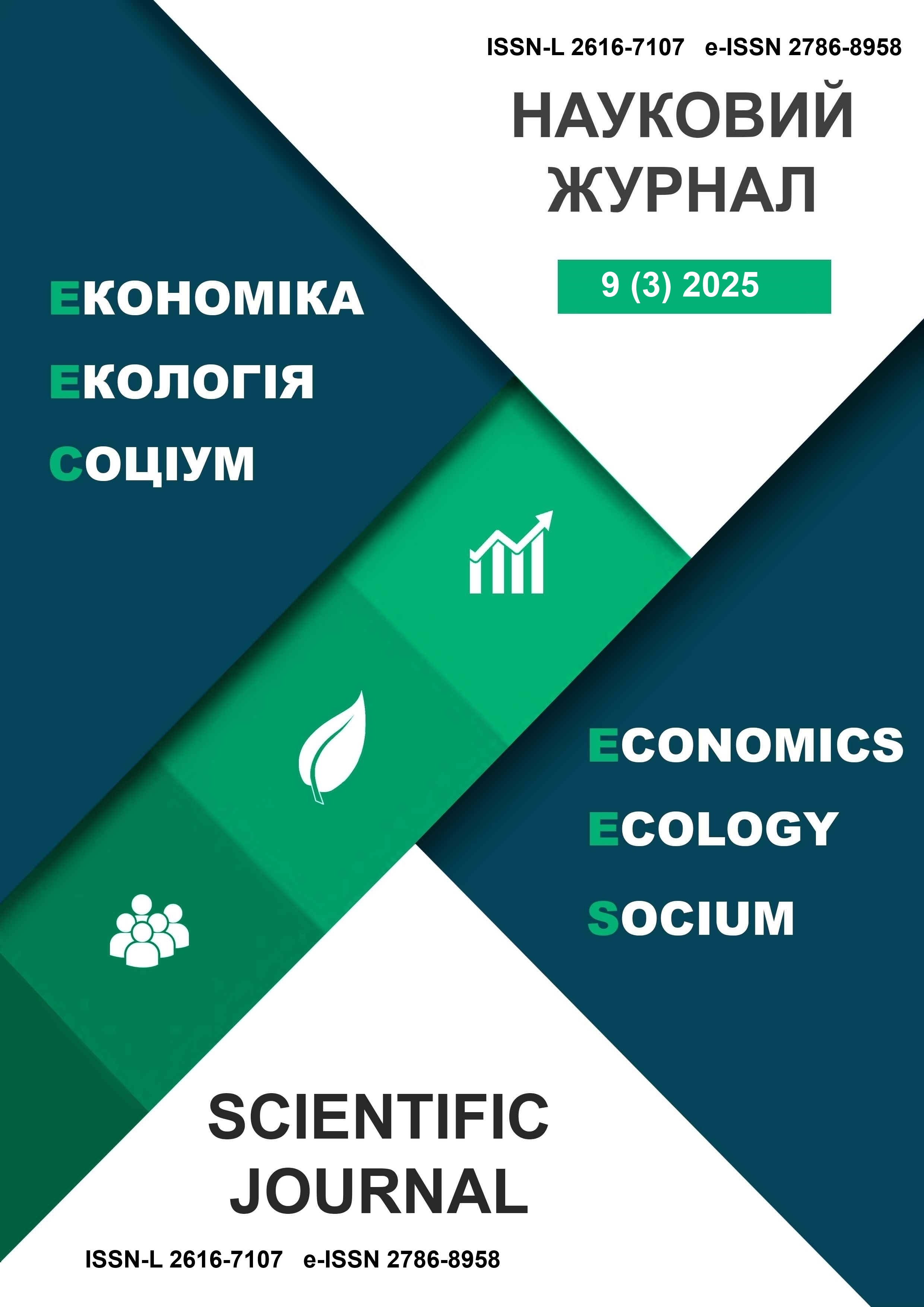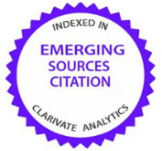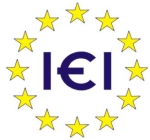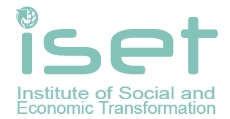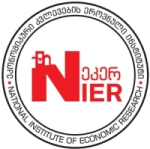GIS-Based Assessment Model of Resilient Management and Monitoring of Water Resources
Abstract
Introduction. The management and efficient use of water resources is a crucial and extremely acute problem. This study focuses on geographic information systems (GIS) as a tool for the resilient management and monitoring of water resources. The objective was to create and implement a GIS-based model for managing and monitoring water resources by developing a system of indicators. This model presents future scenarios for Bulgaria based on the assessment of indicators for resilient management and the efficient use of water resources.
Aim and tasks. This study aims to develop and implement a GIS-based model that integrates technical, economic, social, and environmental indicators for the resilient management and monitoring of water resources in Bulgaria. This study focuses on opportunities to improve the effective management and rational allocation of water resources in Bulgaria using geographic information systems.
Results. A comprehensive system of indicators for assessing sustainable water management in Bulgaria was developed, considering economic, technical, social, and environmental criteria. The calculation of the composite index showed a low level of efficiency, and the main problems were water losses during transportation of up to 55-60%, a reduction in investments in wastewater disposal by 40% (2016-2023) and a low level of reuse of treated wastewater. The GIS-based model revealed significant territorial differences in the state of water resources and consumption in Bulgaria. Key problems include high losses in the water supply network, water use for hydropower, and poor water infrastructure, which affect the resilience of water management. Irrational consumption and storage may lead to serious water supply issues in key regions of the country.
Conclusions. Geographic information systems enable the improvement of water resource management by integrating and processing large amounts of data. In response to the identified research questions, the current state of Bulgaria’s water sector was analysed and assessed. The key factors affecting the sustainable management and use of water resources and territorial imbalances in rational water use were identified. Developing a comprehensive strategy that includes infrastructure modernisation, introducing water-saving technologies and improved management efficiency can overcome structural problems in the water sector and prevent water resource shortages.
Keywords:
GIS Model, Water Management, Resilience, Resources Efficiency, SustainabilityReferences
Aznar-Sánchez, J. A., Belmonte-Ureña, L. J., Velasco-Muñoz, J. F., & Manzano-Agugliaro, F. (2018). Economic analysis of sustainable water use: A review of worldwide research. Journal of Cleaner Production, 198, 1120–1132. https://doi.org/10.1016/j.jclepro.2018.07.066
Baeva, S., & Hinova, I. (2025). Functions and trends for harmful emissions from the main environmental pollutants in the Republic of Bulgaria. AIP Conference Proceedings, 3182(1), 120002. https://doi.org/10.1063/5.0246193
Farouk, A. M., Radzi, A. R., Romali, N. S., Farouk, M., Elgamal, M., Hassan, R., Omer, M. M., & Rahman, R. A. (2024). Performance Indicators for Assessing Environmental Management Plan Implementation in Water Projects. Sustainability, 16(8), 3146. https://doi.org/10.3390/su16083146
Fiksel, J. (2003). Designing Resilient, Sustainable Systems. Environmental Science & Technology, 37(23), 5330–5339. https://doi.org/10.1021/es0344819
Javadinejad, S., Ostad-Ali-Askari, K., Singh, V. P., & Singh, V. P. (2019). Reliable, Resilient, and Sustainable Water Management in Different Water Use Sectors. Water Conservation Science and Engineering, 4, 133–148. https://doi.org/10.1007/s41101-019-00073-6
Kotenko, S., Ilchenko, S., Kasianova, V., & Kens, A. (2023). Risk assessment of water transport enterprises by modeling direct and indirect threats. Economics Ecology Socium, 7(1), 15–25. https://doi.org/10.31520/2616-7107/2023.7.1-2
Koval, V., Gonchar, V., Udovychenko, V., Kalinin, O., Slobodianiuk, O., & Soloviova, O. (2023). Risk management analysis of environmental investment in economic security. Journal of Geology, Geography and Geoecology, 32(3), 540-549. https://doi.org/https://doi.org/10.15421/112348
Kucher, A., Krupin, V., Rudenko, D., Kucher, L., Serbov, M., & Gradziuk, P. (2023). Sustainable and Efficient Water Management for Resilient Regional Development: The Case of Ukraine. Agriculture, 13(7), 1367. https://doi.org/10.3390/agriculture13071367
Marchese, D., Reynolds, E., Bates, M., Morgan, H., Clark, S., & Linkov, I. (2018). Resilience and sustainability: Similarities and differences in environmental management applications. Science of the Total Environment, 613–614, 1275–1283.
McKinney, D., & Cai, X. (2002). Linking GIS and water resources management models: an object-oriented method. Environmental Modelling & Software, 17(5), 413–425. https://doi.org/10.1016/S1364-8152(02)00015-4
Mikhno, I., Koval, V., Shvets, G., Garmatiuk, O., & Tamošiūnienė, R. (2021). Green economy in sustainable development and improvement of resource efficiency. Central European Business Review, 1, 99–113. https://doi.org/10.18267/j.cebr.252
Ministry of Environment and Water. (2023). Act on waters (amend. SG. 102/8 Dec 2023). https://www.moew.government.bg/bg/vodi/zakonodatelstvo/zakoni/
Ministry of Environment and Water. (2025). Basin Directorates. https://www.moew.government.bg/en/water/
Ministry of Regional Development and Public Works (MRDPW). (n.d.). Strategic documents. Retrieved August 21, 2025, from https://www.mrrb.bg/bg/regionalno-razvitie/strategichesko-planirane/dokumenti/
National Statistical Institute. (2025). Statistical data. https://www.nsi.bg/statistical-data/57
Pal, D., Saha, S., Mukherjee, A., Sarkar, P., Banerjee, S., & Mukherjee, A. (2025). GIS-Based Modeling for Water Resource Monitoring and Management: A Critical Review. In S. C. Pal & U. Chatterjee (Eds.), Surface, Sub-Surface Hydrology and Management (pp. 417-434). Springer Geography. Springer, Cham. https://doi.org/10.1007/978-3-031-62376-9_24
Rata, M., Blidaru, T., & Agachi, P. (2014). GIS data modeling in water management decision support systems. In 2014 IEEE International Conference on Automation, Quality and Testing, Robotics (pp. 1–6). IEEE. https://doi.org/10.1109/AQTR.2014.6857918
Szopińska, K., & Ramczyk, M. (2024). Instruments for Supporting Implementation of Sustainable Development Goals for Construction Sector – Case of Poland. Geomatics and Environmental Engineering, 18(4), 55–72. https://doi.org/10.7494/geom.2024.18.4.55
Tsihrintzis, V. A., Hamid, R., & Fuentes, H. R. (1996). Use of Geographic Information Systems (GIS) in water resources: A review. Water Resources Management, 10, 251–277. https://doi.org/10.1007/BF00508896
Tsonkov, N., & Petrov, K. (2024). Model for analysis and evaluation of sustainable cities in Bulgaria in the context of local public policy appliance. Public Policy and Administration, 23(3), 308–323. https://doi.org/10.5755/j01.ppaa.23.3.35309
Velichkova, R., Petrova, T., Simova, I., Bardarov, G., Markov, D., & Uzunova, M. (2020). Water resource management in Bulgaria. In Springer Water (pp. 295–326). Springer International Publishing. https://doi.org/10.1007/978-3-030-22468-4_12
Zhao, T., Song, C., Yu, J., Xing, L., Xu, F., Li, W., & Wang, Z. (2025). Leveraging Immersive Digital Twins and AI-Driven Decision Support Systems for Sustainable Water Reserves Management: A Conceptual Framework. Sustainability, 17(8), 3754. https://doi.org/10.3390/su17083754
If the article is accepted for publication in the journal «Economics. Ecology. Socium» the author must sign an agreementon transfer of copyright. The agreement is sent to the postal (original) or e-mail address (scanned copy) of the journal editions.
